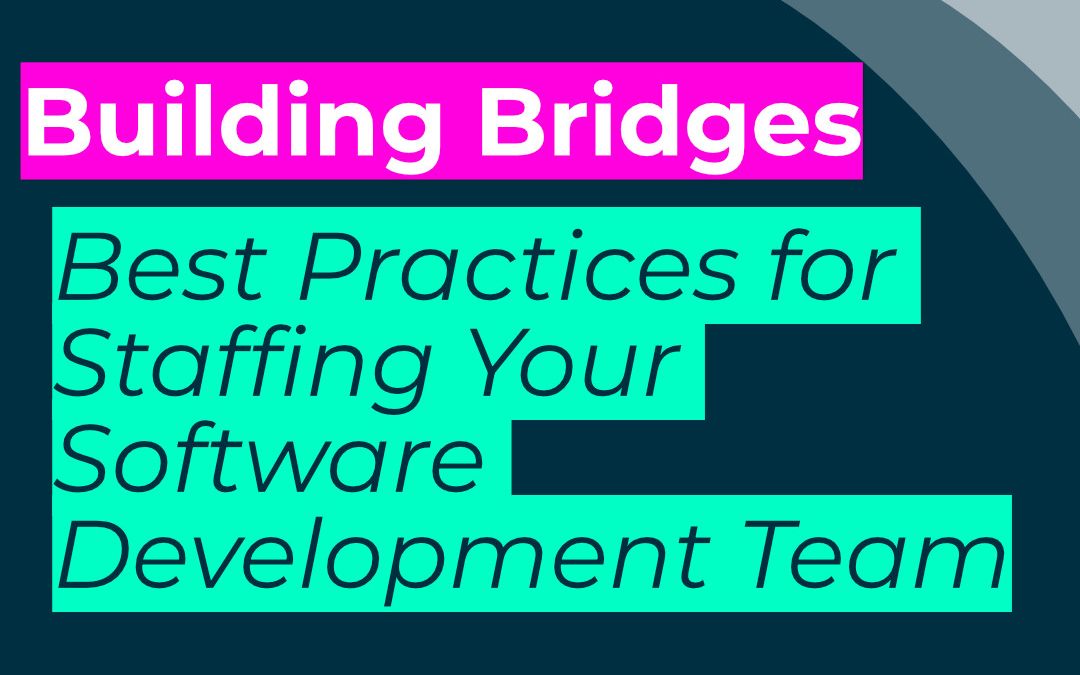Introduction
Staffing and hiring software engineering teams is a critical and complex process that greatly impacts the success of software projects. In this blog post, we will explore some best practices to help you build effective and high-performing teams.
Team is Key
The success of a software product relies heavily on the strength of the team behind it. A dysfunctional team will struggle to implement a good product, while a great team can overcome challenges even with a less-than-perfect product. Recognizing the importance of a cohesive and capable team is the first step towards success.
Software Engineers
No single engineer can be an expert in every aspect of software development. To create a well-rounded team, it is crucial to bring together individuals with diverse engineering capabilities. Examples are the following roles:
Platform Engineers: These engineers specialize in developing and maintaining the underlying infrastructure and processes upon which the software is built.
Backend/Frontend Engineers: Backend engineers focus on server-side development, while frontend engineers specialize in user interface and client-side functionality.
Data Engineers: Data engineers are responsible for designing, building, and optimizing data architectures.
ML Engineers: Machine Learning engineers possess expertise in developing algorithms and models to enable intelligent data analysis and predictions.
Non-Tech Experts
In addition to technical roles, it may be necessary to include non-technical experts in your software engineering teams. These individuals bring valuable skills and perspectives that enhance the overall product development process. Examples for such roles are:
UI/UX Designers: User Interface (UI) and User Experience (UX) designers play a crucial role in creating intuitive and visually appealing interfaces that enhance the user experience.
Copywriters: Skilled copywriters can craft compelling and engaging content that effectively communicates the value and functionality of the software to users.
Product and Management
To ensure that your software development aligns with user needs and market demands, it is imperative to include product and management roles within your teams:
Product Managers: These individuals are responsible for understanding user requirements, defining product vision, and coordinating the development process to deliver products that meet user expectations.
Engineering Managers: Engineering managers play a vital role in overseeing the working processes and the well-being of the team members. They bridge the gap between technical and non-technical stakeholders, ensuring effective collaboration and productivity.
Lean and Diverse
When building software engineering teams, it is crucial to strike a balance between lean team sizes and diversity. Lean teams are focused, agile, and efficient. However, it is essential to embrace diversity not only in terms of gender but also in terms of backgrounds, experiences, and perspectives. Diverse teams foster innovation, creativity, and the ability to solve complex problems from multiple angles.
Conclusion
Staffing your software engineering teams with care and consideration is vital for the success of your projects. By assembling a strong team consisting of diverse engineering capabilities, non-technical experts, and effective product and management roles, you can enhance collaboration, foster innovation, and deliver exceptional software products. Remember, a great team can overcome challenges and create remarkable results, even in the face of a less-than-perfect product.



